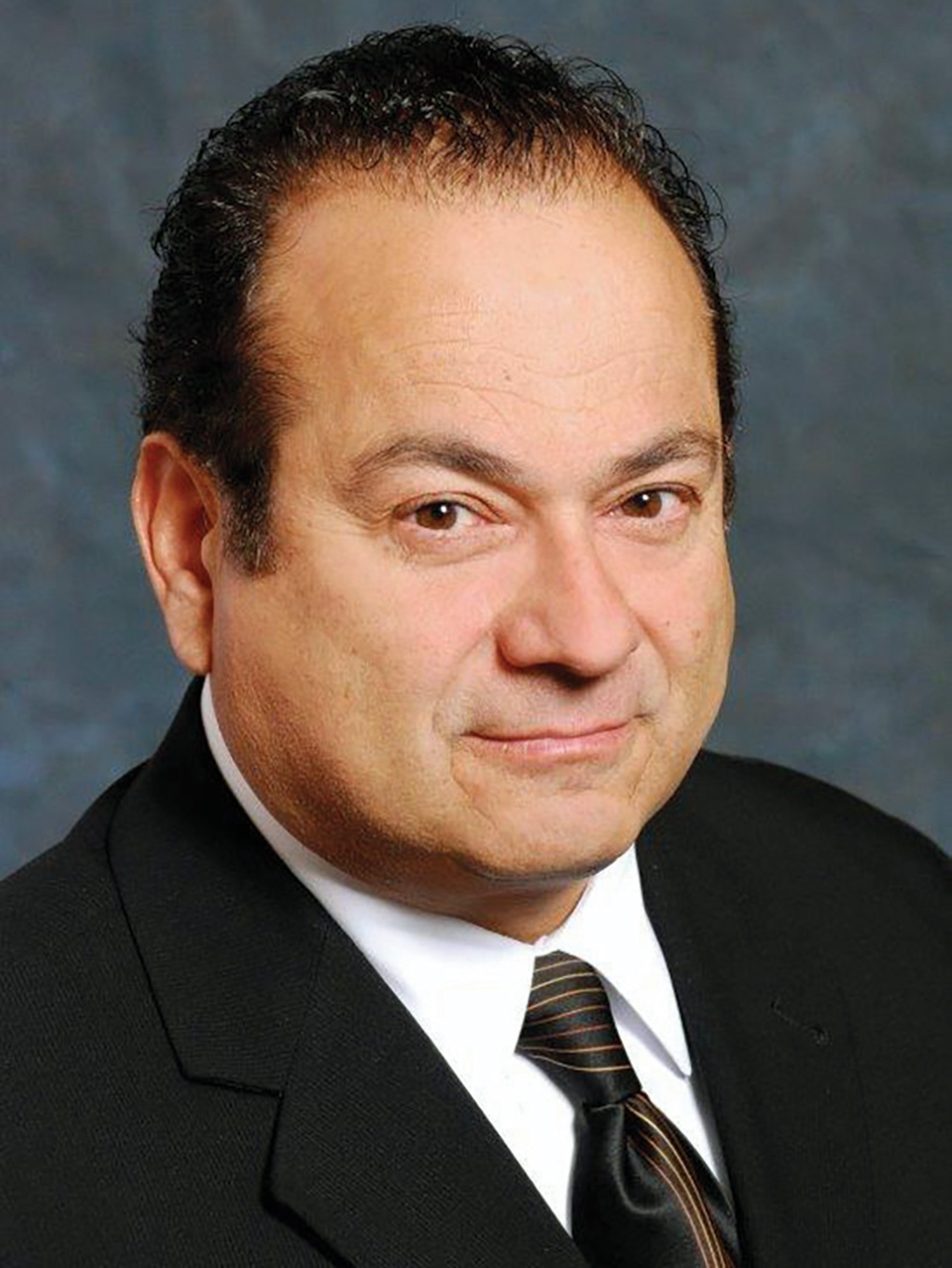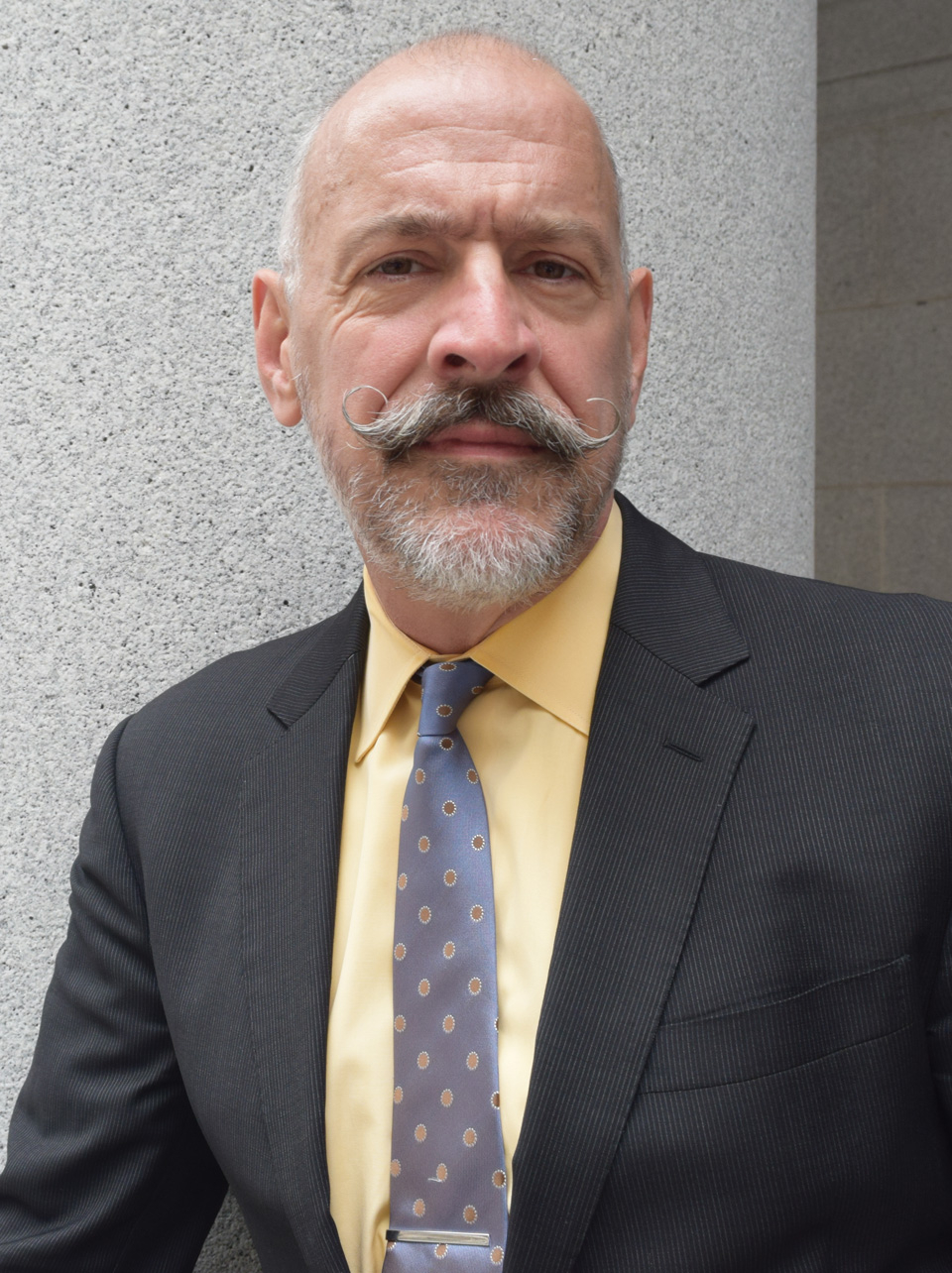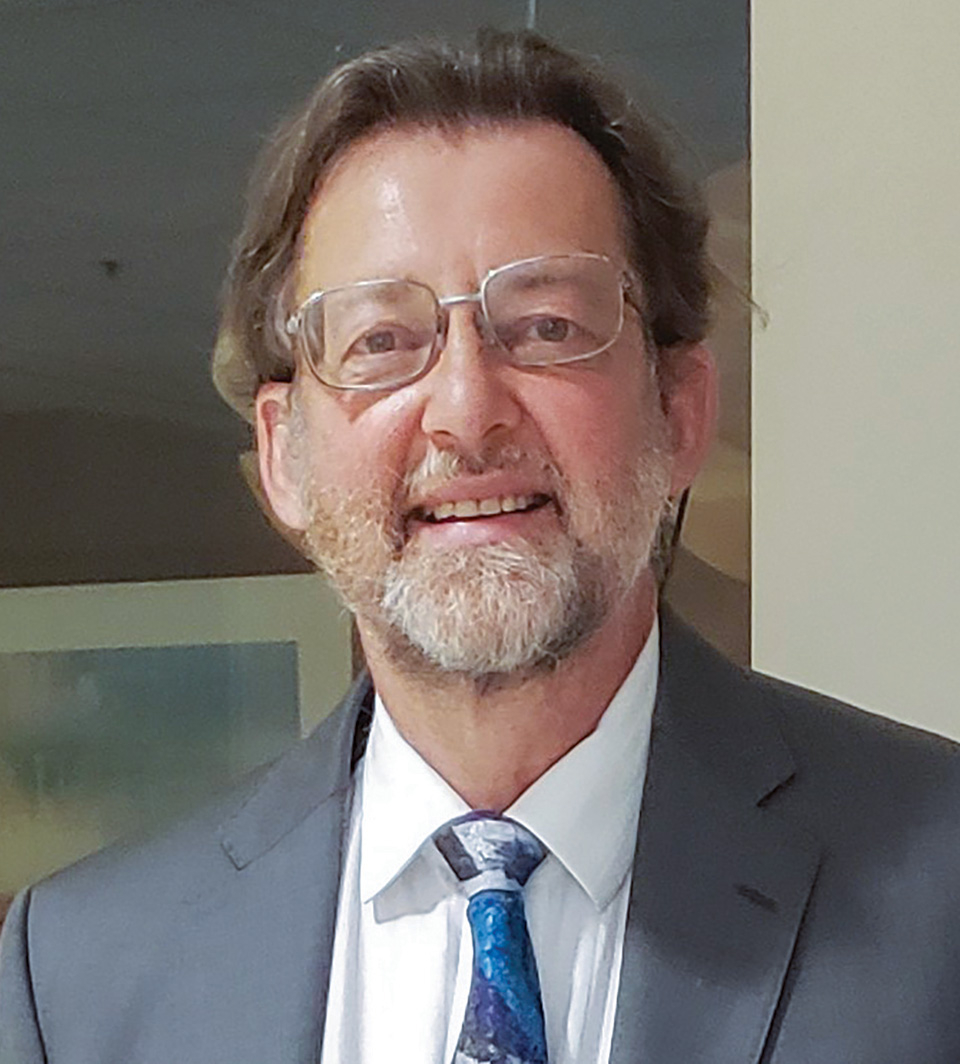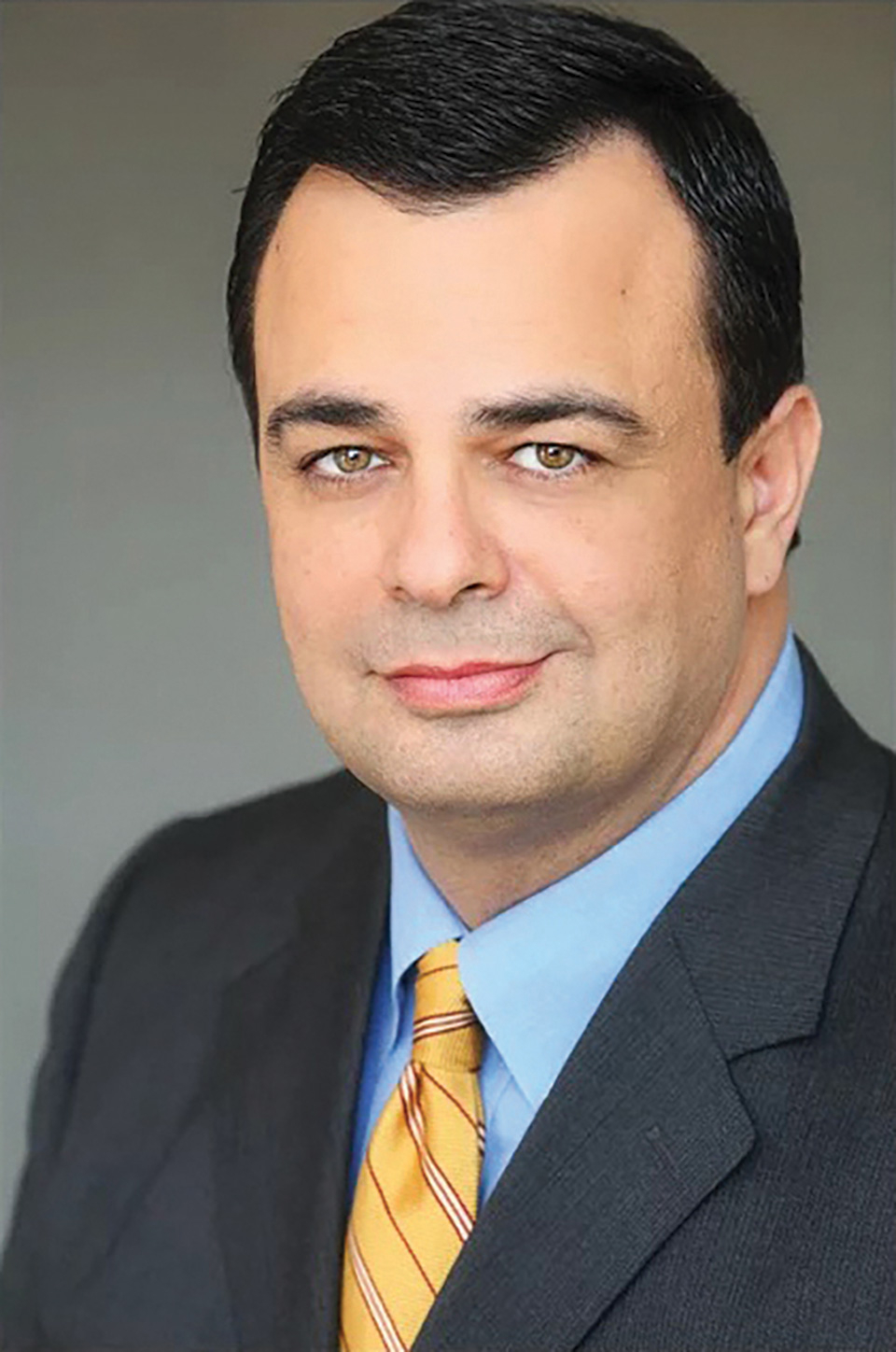Halfway through 2024, and that old adult industry adage is once again confirmed: If it’s an election year in the U.S. — particularly a presidential election year — there will most certainly be a big spike in anti-porn campaigns by politicians seeking to score easy culture war “wins.” The specific flavors of such campaigns, however, vary from one election cycle to the next.
Between 2016 and 2020, many anti-porn campaigns focused on a bogus “public health crisis.” Viewing sexual content online — even when legally produced and watched by consenting adults — was depicted as a pseudoscientific viral epidemic with physical effects on people’s brains and bodies. Something like a pop neuroscience-enhanced version of Victorian cautionary tales about masturbation making men grow hair on their palms.
The 2020 and 2022 election cycles were dominated by campaigns to abolish or drastically reform Section 230, the so-called “First Amendment of the internet,” which shields platforms and online services from most liability for content posted by third parties.
Section 230 certainly remains a concern on the legal front. So does the use of artificial intelligence, especially since the rise of ChatGPT and other much-ballyhooed consumer-facing systems to generate artificial content. However, the looming issue for the election cycle of 2024 is, without a doubt, age verification.
Largely designed and promoted by religious conservative activists and groups, the recent slew of age verification bills have almost invariably been introduced by lawmakers on the political right. However, they have been embraced, for various reasons, by many of their supposedly left-leaning or progressive colleagues as well. As a result, many have been voted into law — though many also face challenges in the courts.
While the scope and wording of such bills vary, they all attempt to create criminal and/or civil liability for sites that fail to implement age verification for viewing adult content. Therefore, this XBIZ Legal Survey will focus on the ramifications of the emerging complex patchwork of state, federal and international age verification laws.

Lawrence Walters
The Age Verification Conundrum: Challenge or Comply?
As industry trade group Free Speech Coalition (FSC) and prominent stakeholders such as Aylo are forced to repeat endlessly, the commercial adult industry is absolutely not interested in showing adult content to minors. Beyond the obvious ethical considerations, the simple fact is that adult content is produced to be monetized, so the target audience is people with credit cards. Marketing adult content to minors therefore makes no sense.
Yet aside from rare instances, such as U.K. media regulator Ofcom soliciting feedback on regulation of adult websites under the Online Safety Act, the current crusade to impose age verification has largely disregarded any meaningful consultation or engagement with actual adult industry stakeholders, be it companies, creators or other sex workers. Instead, bills and proposals being introduced by the industry’s avowed enemies and would-be censors continue to harp on pseudoscientific claims about “porn addiction” and other familiar anti-porn rhetoric espoused by faith-based moralists.
The adult industry is extremely diverse, and responses have varied accordingly. Several adult industry stakeholders are actively endorsing, as a more effective and enforceable alternative to site-based age verification, device-based solutions that could be activated by parents and guardians of minors. Others have partnered with identity verification solutions of the kind endorsed in age verification bills and laws. While FSC and some major stakeholders have been fighting the new AV laws, others are more focused on how to comply with them. For reasons as diverse as there are types of business folk, various adult companies regard the new rules as anything from “bad but inevitable” to “something that should be have been done a long time ago.”
Add to this the souped-up rhetoric typical of election years, deliberate sensationalizing by mainstream media, and enough variation among proliferating “copycat” laws to create a compliance nightmare, and it becomes clear why industry attorneys’ time is now increasingly spent on guiding their clients through the Great Age Verification Crisis of 2024.
“The rash of age verification laws sweeping the country have presented numerous challenges for adult website and platform operators in the U.S., due to the differences in compliance methods and scope of coverage contained in each law,” notes veteran industry attorney and First Amendment expert Lawrence Walters of the Florida-based Walters Law Group. “We are forced to track all the current and pending laws in a database in order to stay on top of this rapidly evolving legal environment.”
According to Walters, the situation has reached a tipping point where the entire industry is waking up to the impact of these changes, particularly in the wake of Texas’ controversial age verification law, HB 1181.
HB 1181 was authored by Texas Attorney General Ken Paxton’s wife, state Sen. Angela Paxton, reportedly with input from pastor Mike Buster of the Prestonwood Baptist megachurch, to which the Paxtons belong.
Passed by the Texas legislature in May 2023, the law is a much-augmented version of the first state AV law, enacted by Louisiana, and its many copycats. At the time, the FSC condemned the law as “blatantly unconstitutional” and a “violation of the First Amendment rights of creators, consumers and platforms.”
In August 2023, FSC filed a legal challenge in Texas over HB 1181, alongside top stakeholders. That challenge is still ongoing. In March, in a mixed decision, the United States Court of Appeals for the 5th Circuit ruled on the law, overturning a lower court’s injunction against enforcement, but striking down the provision that mandated that adult websites post a “health warning” perpetuating religious anti-porn propaganda myths.
“Some adult website operators are hoping the age verification issue goes away or will not affect them, so they can continue conducting business as usual,” Walters explains. “However, unless the U.S. Supreme Court gives the industry a resounding victory in the FSC v. Paxton case, declaring the Texas age verification law unconstitutional, these issues will continue to impact the adult community in significant ways.”
In late April, SCOTUS denied a request by FSC and its co-plaintiffs to stay Texas’ controversial age verification law while the court decides on a petition that would effectively overturn it on constitutional grounds.
“If the court does not accept the case,” Walters says, “the industry may be left with challenging each state’s law, one by one. Some may stand and some may fall, and the litigation could take years.”
Walters says adult website operators will need to “carefully evaluate” their risk tolerance when responding to the new obligations presented by the legal patchwork, adding that some enforcement actions have already been filed, seeking millions of dollars in penalties.
“At least one age verification law imposes criminal penalties for violations, which ups the ante for any operator that fails to fully comply,” he says. “This is an important time for operators to work in close consultation with their legal and technical advisors when crafting their compliance methodology regarding age verification.”
One of the industry’s most veteran free speech champions, Paul Cambria of the Buffalo-based firm Lipsitz Green Scime Cambria, who represented Larry Flynt in many anti-censorship legal battles over several decades, also has serious concerns about SCOTUS’ decision.

Paul Cambria
“The Court rejected a request from the adult entertainment industry to block the law on First Amendment grounds,” Cambria explains. “The new Texas law requires any website that publishes a ‘substantial amount’ of content that is ‘harmful to minors’ to verify the age of users. Challengers to the law, led by FSC, have said that it also forces adults to identify themselves before accessing pornography, which violates access to free speech online.”
Cambria sees that requirement as likely to cause what constitutionalists term “a chilling effect,” which he describes as “a phenomenon where individuals or groups of people refrain from engaging in expression due to fear of running afoul of a law or regulation.”
Cambria advises industry stakeholders to “be mindful and stay up to date on age verification laws, as they are changing by the month. These laws inevitably reduce content creators’ ability to post and distribute legal adult content.”
Another experienced industry attorney and First Amendment specialist, Corey Silverstein of Silverstein Legal, expresses amazement at the blitzkrieg-like speed, virulence and initial success of the campaign to target access to adult content.
“Who would have ever thought that there would be 50 state-sponsored age verification bills drafted in such a short period of time?” Silverstein asks, adding that by the time this article hits publication, that number will probably be even higher.
“Make no mistake about it, the adult industry is in a fierce battle against legislators who have chosen to disregard the First Amendment and established U. S. Supreme Court case precedent,” Silverstein adds. “Fortunately, at this point Texas — with AG Paxton leading the charge — seems to be the only state trying to enforce any of these laws while the various ongoing legal challenges make their way through the courts.”
Silverstein sees the Texas legal battle, as “undoubtedly one of the biggest legal challenges the adult entertainment industry has ever faced. If SCOTUS doesn’t decide to take the case, the industry will be stuck with the disastrous decision from the 5th Circuit Court of Appeals. It would be a massive blow to the adult industry’s fight against age verification and free speech.”
He remains “cautiously optimistic,” however, that SCOTUS will have the wisdom to take on this case.

Gill Sperlein
The Usual Anti-Porn Crusaders Meet a Politicized Judiciary
Beyond Texas and the ever-mushrooming list of state laws and bills in different stages, from introduction to enforcement, the age verification crusade against porn becomes even more complicated.
“Unfortunately, this age verification regulation epidemic is spreading outside of the United States,” Silverstein warns. “Countries like the United Kingdom are aggressively pushing forward with plans for enforcing their own age verification restrictions. While I do not disagree with the need to protect children from sensitive content online, I do not believe for a second that this is the primary motivation of the lawmakers pushing these laws.”
What is actually at the core of these laws, he adds, is “a push from conservative lawmakers to eliminate as much adult content from the internet as they can. Their goal is simple: ignore free speech to push their own conservative religious beliefs while publicly and shamefully claiming that these laws are all about protecting children.”
This is not hyperbole. As Silverstein notes, many of the advocates pushing for these age verification bills “have a history of previous failed attempts at trying to limit access to adult entertainment.” Facing off against FSC, creators and sex workers at diverse hearings nationwide, well-funded anti-porn crusaders flown in by outfits like controversial ministry Exodus Cry and NCOSE — formerly Morality in Media — have been speaking out in support of these bills.
The crusaders’ real agenda is easily discerned in statements made by supporters and the politicians who introduced the bills, celebrating Aylo’s decision to geoblock Pornhub in several states that have passed AV laws, over liability concerns.
Recently, after Oklahoma’s Republican governor, Kevin Stitt, signed SB 1959 into law, its author, Republican Sen. Jerry Alvord, praised similar measures in other states because they “have seen Pornhub exit completely” as the laws “make it difficult for them to do business.”
That same week, the Catholic Vote news site heralded the signing of Georgia’s SB 351 by Republican Gov. Brian Kemp with a peculiar, overtly censorship-endorsing headline underlining these bills’ real intention: “Georgia joins list of states shutting down porn sites as governor signs age verification law.”
Industry attorney and longtime FSC board chair Jeffrey Douglas, who has witnessed close-up every attack on the industry since the dawn of the public internet, puts the current adult verification campaign in historical perspective.
“These laws represent a grave threat to the World Wide Web for every adult, but specifically the intended target, the internet of sexual imagery and ideas,” Douglas explains. “For decades, professional censors, largely associated with and financed by right-wing Christian groups, have tried to find means to get around the obscenity standard set by the U.S. Supreme Court back in 1973. Of the many attempts over the decades, we are now seeing the most challenging.”
Douglas’ urgency arises in large part from the conservative takeover of the Roberts Supreme Court during the Trump administration, a long-held objective of activist legal group the Federalist Society.
“Because of the politicization of the judiciary, we can no longer rely on Supreme Court precedent,” Douglas points out. “The new ‘conservatives’ of the Supreme Court are comfortable distorting precedent and denying the notion of our Constitution evolving along with the culture, and the radical ‘conservatives’ on lower courts therefore feel free to ignore precedent. As a result, free speech advocates find themselves in uncharted waters.”

Jeffrey Douglas
Before the ongoing, closely-observed litigation spawned by Texas’ HB 1181, free speech advocates could take solace in the precedent set by the 2004 SCOTUS decision in Ashcroft v. ACLU, which struck down a federal law requiring that adult websites verify the age of viewers before allowing them to access sexually explicit material. That decision used the most rigorous standard, “strict scrutiny.”
“When Texas and Louisiana each passed laws requiring precisely the same kind of site-based ‘adult verification’ that the Supreme Court struck down 20 years ago, virtually all scholars believed the law was doomed,” Douglas says. To their surprise, however, the aforementioned 5th Circuit panel ruling upheld the Texas law and added that the use of “strict scrutiny” by the Supreme Court had been a mistake.
“The 5th Circuit ignored precedent and upheld the Texas law using the lowest standard, that of ‘rational relationship,’” Douglas notes. “This has opened the door for our sworn opponents to get bills — drafted by the anti-sex organizations and claiming that these are ‘necessary to protect children’ — passed in a dozen states, with most other states considering similar laws.”
About 10 states have passed some form of age verification law and there are pending bills in about 25 other states, according to First Amendment expert Gill Sperlein.
“The laws are largely similar but come in two major varieties sometimes referred to as public — enforced by the state — and private, meaning enforced by individuals,” Sperlein explains. “Most of the laws provide for private enforcement, which allows for parents to sue adult sites that do not age-verify for damages caused if a minor accesses the non-complying website. The state legislatures set it up this way because it makes it difficult for websites to challenge the constitutionality of the laws.”
Websites can either comply, or wait to be sued and then raise a First Amendment defense, he adds. If the First Amendment defense fails and the parents win, the website must pay the parents’ attorneys fees. If the website wins, there is no provision that the parents have to pay its attorneys fees.
States that have passed AV laws that allow the state attorney general or department of justice to enforce those laws include at this point Alabama, Florida, Georgia, Indiana, Kansas, Louisiana and Texas.
In Sperlein’s view, and in the view of the district court where FSC v. Paxton was filed, these laws are unconstitutional.
“Way back in 1997, the United States Supreme Court invalidated a federal law restricting internet communications deemed harmful to minors on First Amendment grounds in Reno v. ACLU,” Sperlein explains. “In Reno, the court recognized that the law was content-based — that is, it treated adult content, defined as material harmful to minors, differently from other content. Therefore, the court applied the required strict test mandating that such laws be narrowly tailored. Because it would be less intrusive for parents to use parental controls than to force all internet users to identify themselves and prove their age, the law was unconstitutional.”
When FSC sued in Texas, he adds, the group filed a motion asking the district court to enjoin the law from going into effect while the lawsuit proceeded through discovery and a trial.
“Texas argued that it is much easier to perform age verification than it was over 25 years ago,” Sperlein notes. “Adult industry lawyers, including me, worried that the court might buy into that argument and deny the motion. But the court issued a well-reasoned and lengthy opinion stating that Reno controls, FSC is likely to win and the law should be preliminarily enjoined. Texas appealed to the 5th Circuit. Again, the worry was that the court would agree with Texas that technological changes prevented FSC from establishing that its challenge is likely to be successful.”
That was not what the 5th Circuit did in its controversial ruling.
“Instead, the court pretended that the Supreme Court did not apply the strict scrutiny test in Reno,” Sperlein says. “The court wrote that the constitutionality of this law should be determined by applying the ‘rational basis’ test — a very low standard. I predict that lawsuits will be filed against the other non-5th-Circuit states that have passed public enforcement age verification laws, including Florida and Georgia, which are in the 11th Circuit and Indiana which is in the 7th, and Kansas which is in the 10th Circuit. I refuse to predict what those courts will do.”
For Douglas, the chaos caused by the current age verification campaign is a feature, not a bug, as AV laws have been deliberately drafted by porn-hating groups so that the systems adopted by the states would be wildly expensive and, by design, user-unfriendly, leading to geoblocks or self-censorship.
“Websites that have attempted to comply with Louisiana, for instance, have found that less than 5% of visitors complete the AV process,” Douglas points out. “These numbers have been wildly encouraging to those who believe that looking at human genitals — or even a woman’s nude breast — is a violation of God’s law.”
Although Douglas finds grounds for optimism in the hope that other federal appeals courts “will not be as intellectually dishonest as the 5th Circuit,” he sees the current situation as another battle in the seemingly endless war over the right to display sexual images and communicate sexual ideas to consenting adults.
“If we lose this war, consumers will migrate to websites in countries outside the U.S. and Europe — websites with no incentive to comply with any of our laws and practices,” he admonishes. “And despite the U.S. Supreme Court condemning the idea only 20 years ago, we shall have a World Wide Web providing only those materials suitable for children.”

Nick Zargarpour
The Brave New World of AI
Like age verification, the next frontier in content creation has also become a hot spot that lawyers and their industry clients need to keep an eye on: artificial intelligence (AI). Unlike age verification, however, AI-generated adult content is a novel enough development that it evokes few certainties or long-held convictions, and the industry — like the society it is part of — is still far from consensus on a blueprint for how to address it.
It is important to remember that the adult industry is a branch of showbiz, and a subset of entertainment and tech. Issues around “AI porn” therefore necessarily overlap with AI content issues in general — though of course with the added complications of historic stigma around porn and the psy-op actions of anti-porn crusaders and their political and media allies.
Cambria is urging his clients to keep an eye on legislative buzz around passing laws to address so-called “deepfakes.”
The DEEPFAKES Accountability Act, Cambria explains, has been introduced in the House of Representatives to make sharing nonconsensual AI-generated pornography illegal in the U.S.
The law’s stated aim is to protect against “national security threats posed by deepfake technology and to provide legal recourse to victims of harmful deepfakes.” According to Cambria, pornography makes up the majority of online deepfake media.
“News outlets are even describing deepfake pornography as ‘image-based sexual abuse,’” he explains. “Several states have begun drafting and enacting their own versions of deepfake laws.
“One issue that the adult industry should be concerned about regarding deepfake media is content creators not being paid for what should be their images,” Cambria advises. “AI-generated content is taking images of celebrities, public figures and even regular everyday individuals, and placing their faces onto pornographic images to be sold.”
Often, Cambria adds, these individuals have no idea this is happening until they see the image.
“Even if the individual wanted to be paid for the creation and sale of their persona, they have no way of doing so,” he says. “It will be interesting to see how the deepfake laws evolve, because they will address not only the nonconsensual use of a person’s image, but how that person would, if they wanted to, be paid for such content.”
Nick Zargarpour, an industry attorney with extensive experience working with companies and creators on contracts, has advised clients on AI-proofing their work.
“During the past year, I’ve seen a lot of AI companies send creators agreements to use their name, image, likeness and sound (NILS),” he shares. “These agreements range wildly from well-written to extremely bad. This area is extremely new and similar to the ‘wild, wild west.’”
Zargarpour urges his clients to pay special attention to three areas of contractual terms: 1. How long does the company get to use the NILS? Can the parties terminate this agreement? And what happens to the NILS at that point? 2. Does the creator have the right to prevent the company from using the new AI character? Can the company have the character do any kind of sexual acts, political actions, etc.? and 3. How will the company account for the monies that are to be distributed? Does the creator have audit rights? Does the creator get proper accounting?
“The creator should be able to prevent certain actions by their AI character,” Zargarpour says. “There are a lot more points that need to be addressed. It is always best to have an attorney review these agreements before they are signed. An ounce of prevention is worth a pound of cure.”
Several of the attorneys XBIZ consulted agree that AI considerations will become increasingly central as the technology disseminates throughout culture and commerce.
“AI seems now to be powering and driving everything from websites, to video games to education and more,” says Silverstein. “More than 4 billion devices are now powered by AI assistants, and this number is set to reach 8.4 billion by the end of 2024. Furthermore, as of April 2024, 42% of all organizations are now either implementing, researching or training their teams to integrate AI into their products and services.”
The adult industry has always been a leader in technology innovation, Silverstein points out, and AI is not going to be any different.
“The adult industry’s utilization of AI products and tools is skyrocketing and new products are being released almost daily,” he says. “From a legal perspective, there is still a tremendous number of legal unknowns due to the small amount of AI-specific laws and regulations. However, that is changing and it’s happening fast.”
As lawmakers — and lawyers — across the world race to keep up with AI and the legal problems that come with it, including privacy concerns, intellectual property issues, impersonation and more, both known and still unknown.
As lawsuits and regulatory actions ramp up, Silverstein foresees some of the gray areas “getting washed out and companies being forced to move quickly to keep up with various changes to the law.” However, he sees the issue of deepfakes as entirely separate.
“Governments are aware of deepfakes and they have made mainstream headlines due to the likes of Taylor Swift and other celebrities being targeted,” he says. “The creation of AI content without an individual’s consent is unethical and should be illegal. Look out for a substantial increase in both criminal prosecutions and civil suits related to deepfakes.”

Corey Silverstein
The Dormant Issue: Section 230
Considering the issue’s prominence in the 2022 XBIZ Legal Survey, and in the rhetoric of the 2020 presidential campaign, one might expect attempts to reform or abolish Section 230 to play a central role in 2024 as well.
After all, both presidential candidates, Biden and Trump, actively campaigned to get rid of the 1996 provision shielding platforms from liability for third-party content, despite the fact that Section 230 directly facilitated the internet revolution of the late 1990s and early 2000s by enabling the free dissemination of ideas, images, files, etc. in the U.S. without constant threat of litigation or state intervention.
Biden and Trump, and their parties, disliked Section 230 for different reasons, but both sides of the aisle seemed committed to obliterating it. Two years later, Section 230 is still around, albeit facing occasional skirmishes around KOSA, the Kids Online Safety Act, sponsored by the bipartisan tag team of Sens. Richard Blumenthal and Marsha Blackburn. But there has been nothing this year like the barrage of hearings circa 2020-2021, when a particularly sanctimonious Sen. Lindsey Graham presided over endless, often nonsensical denunciations of the “First Amendment of the internet” by the likes of Sen. Ted Cruz and Sen. John Neely Kennedy.
“I’ve written so much about the government’s ongoing efforts to narrow the applicability of Section 230 that I’m not sure what else can be said to those who still don’t understand its importance,” says Silverstein. “The internet and the world would not be what it is without Section 230. There wouldn’t be web hosts, registrars or platforms like Facebook and Twitter/X because it would be too risky for them to operate under the constant threat of being held responsible for the activities of third-party users.”
The irony of the situation, Silverstein adds, is how substantially politicians rely on social media to solicit votes and support for their various causes.
“Yet at the very same time, these same politicians ignore the fact that they only have the benefit of social media because of Section 230,” he says. “This remains a major frustration for me as a lawyer because I still believe that there is a massive lack of understanding as to why Section 230 is so important, and why efforts to shrink its applicability threaten to curtail the free sharing of information and make the internet worse.”
The zombielike reemergence of Blumenthal and Blackburn’s KOSA and similar bills every election season demonstrates that Section 230 remains a persistent target for politicians on both sides of the aisle.
“Is that the sound of an election coming up?” Silverstein asks. “Then go ahead and put your bottom dollar on both Republicans and Democrats making all sorts of promises about how they are going to narrow Section 230. It’s a safe bet.”
The Political Outlook: Cloudy With a Chance of Censorship?
What is not a safe bet at all is the continued legality of adult content in the U.S., especially in the eventuality of a Trump victory in November.
Former Trump aide John McEntee, now a senior advisor to the Heritage Foundation-led 2025 Presidential Transition Project — also known as “Project 2025” — recently told Daily Wire host Michael Knowles that a porn ban should be a priority for the next Republican administration.
McEntee called pornography “a stain on not only society but the entire dating culture as well” and told Knowles, “Whenever America bans that, which will be happening at some point, everyone will be much better off.”
The introduction of Project 2025’s “Mandate for Leadership” blueprint document declares that pornography “has no claim to First Amendment protection” and should be outlawed.
“The people who produce and distribute it should be imprisoned,’’ the document continues. “Educators and public librarians who purvey it should be classed as registered sex offenders. And telecommunications and technology firms that facilitate its spread should be shuttered.”
According to Silverstein extremist pro-censorship talk, like attacks on Section 230, is also par for the course during an election year. However, he remains optimistic about the status quo, regardless of Project 2025’s broad pronouncements.
“Whether Joe Biden or Donald Trump is the next president of the United States, I don’t foresee any monumental changes such as the return of obscenity prosecutions,” he notes. “Nonetheless, a strong win by religious conservatives would have substantial negative consequences for the adult industry, so I implore every eligible voter to exercise that right.”
Lawrence Walters concurs that the political environment always affects the adult industry to a certain extent, as it is an easy political target.
“As we approach an important presidential election, it would not be surprising to see controversial or even blatantly unconstitutional legislation introduced by adversaries of the adult industry,” he says. “Lofty goals, such as protecting children or vulnerable individuals, will be asserted as the justification for these proposals. The legislation may go nowhere, or be quickly dispatched by the courts if passed, but nonetheless can be used successfully by politicians in their campaigns.”
Walters adds, “In the past, widespread prosecutions against the adult industry have been used for political purposes. Those were premised on obscenity law violations, which is unlikely in the current environment, but the industry could be targeted for legal action based on other issues.”
Walters also notes that both Republicans and Democrats have acted against the interests of the adult industry when it was politically expedient for their agendas.
“In that way, it is an equal-opportunity target,” he concludes. “However, the industry is increasingly engaged and educated on both legal and political issues impacting its survival. Remaining current on the ever-changing legal and political environment will significantly mitigate operational risks and pay dividends in the future.”






